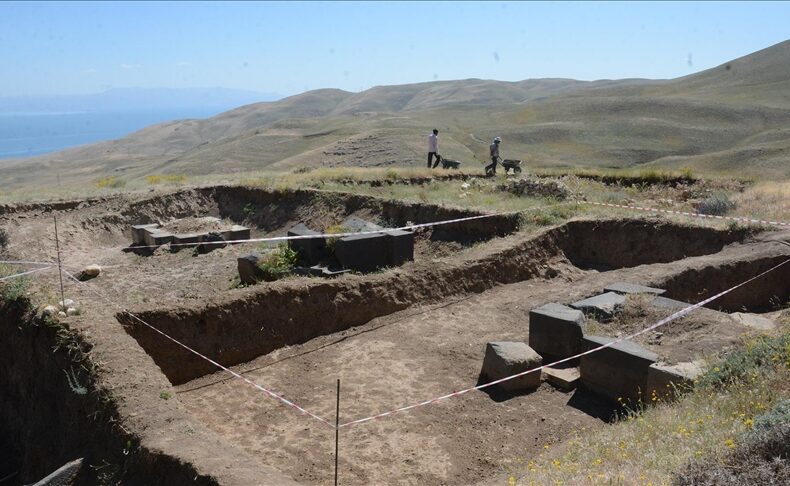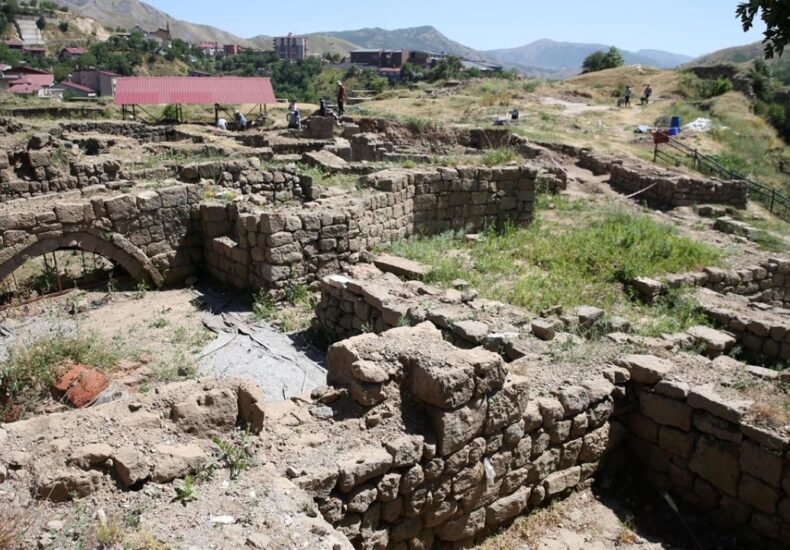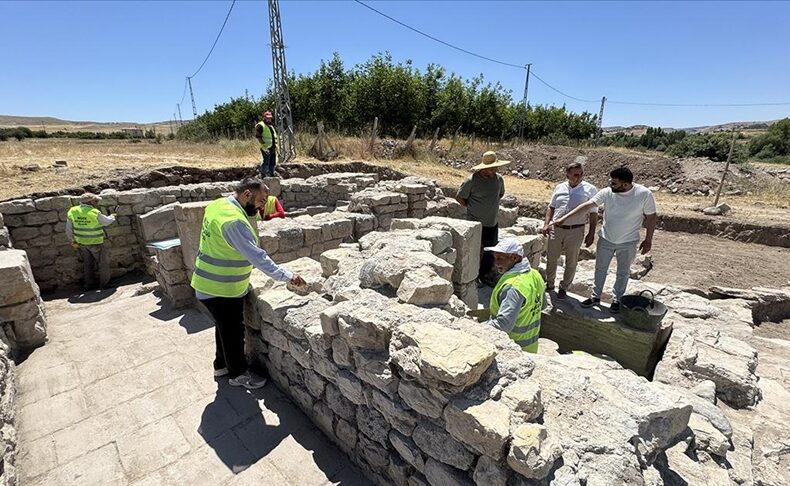
2,700-Year-Old Urartian Columns Unearthed at Kef Castle: A Discovery Shedding Light on Anatolian History
Archaeological excavations at Kef Castle, located in the Adilcevaz district of Bitlis province, have revealed a stunning discovery: 49 massive “elephant foot” columns, dating back nearly 2,700 years to the Urartian period. Perched on the slopes of Mount Süphan and overlooking the breathtaking Van Lake, Kef Castle was built by King Rusa II of the

Archaeologists Discover Centuries-Old Prayer Tablet and Ottoman-Era Treasures in Eastern Türkiye
Archaeologists working at the historic Bitlis Castle in eastern Türkiye have unearthed a rare centuries-old prayer tablet along with Ottoman-era coins, ceramic fragments, an ancient water distribution system, and several graves. The discovery is shedding new light on the region’s diverse religious and cultural history. The excavation, authorized by the Turkish Ministry of Culture and

Ancient Roman Bathhouse Discovered Beneath Farmland in Eastern Anatolia
Archaeologists have uncovered a 1,700-year-old Ancient Roman bathhouse in a field in the village of Salkaya, located in Elazığ province in eastern Anatolia. The discovery, which was made possible through ground-penetrating radar (GPR) and systematic excavations, offers valuable insights into the region’s Roman past and is believed to have belonged to an elite social class
